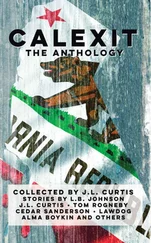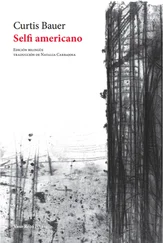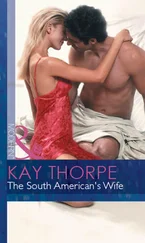Curtis Sittenfeld - American Wife
Здесь есть возможность читать онлайн «Curtis Sittenfeld - American Wife» весь текст электронной книги совершенно бесплатно (целиком полную версию без сокращений). В некоторых случаях можно слушать аудио, скачать через торрент в формате fb2 и присутствует краткое содержание. Жанр: Старинная литература, на английском языке. Описание произведения, (предисловие) а так же отзывы посетителей доступны на портале библиотеки ЛибКат.
- Название:American Wife
- Автор:
- Жанр:
- Год:неизвестен
- ISBN:нет данных
- Рейтинг книги:4 / 5. Голосов: 1
-
Избранное:Добавить в избранное
- Отзывы:
-
Ваша оценка:
- 80
- 1
- 2
- 3
- 4
- 5
American Wife: краткое содержание, описание и аннотация
Предлагаем к чтению аннотацию, описание, краткое содержание или предисловие (зависит от того, что написал сам автор книги «American Wife»). Если вы не нашли необходимую информацию о книге — напишите в комментариях, мы постараемся отыскать её.
American Wife — читать онлайн бесплатно полную книгу (весь текст) целиком
Ниже представлен текст книги, разбитый по страницам. Система сохранения места последней прочитанной страницы, позволяет с удобством читать онлайн бесплатно книгу «American Wife», без необходимости каждый раз заново искать на чём Вы остановились. Поставьте закладку, и сможете в любой момент перейти на страницу, на которой закончили чтение.
Интервал:
Закладка:
As for those who hate me because they hate Charlie, hate me by extension, I am curious of this: At what point, in their opinion, should I have done something, and what should that something have been? Should I not have married him? Should I not have discouraged his drinking? (“Jim Beam and me, have us both”—is that what I ought to have said?) When he told me that he wanted to run for governor and I told him I’d prefer he didn’t (though I foolishly thought at least it was better than congressman or senator, at least it would keep us in Wisconsin)—when he decided that in spite of my stated preference, he was indeed going to run, should I have left him? Should I have stayed with him but not campaigned for him? Should I have stated explicitly to the public when my views differed from his? Should I have left him when he decided, also against my wishes, to run for president? Anyone who has been married, and especially anyone married for several decades, knows the union is a series of compromises; to judge the compromises I have made is, I take it, easy to do from far away.
If I am diffident, then my diffidence stems in part from my aversion to arriving hastily at decisions. During the lead-up to the war, I sincerely didn’t know what I thought the right course of action was; I read articles for both sides, and I found convincing arguments in each. Because the stakes were so high, I did have an uneasy feeling during the early months of 2003, but Charlie and I talked about the situation less than one might imagine, or I should say we talked logistically more than we discussed the philosophical or historical implications. He’d call from the Oval Office and say, “I’ve got to go to a meeting in the Sit Room, so how about if we watch that movie tomorrow night instead?” Or, as he once put it about the secretary of state, “We’ve been pumping up Stanley for his talk to the UN Security Council on Wednesday, and I think he’s really gonna hit this one out of the park.”
These days, it is common for people in both political parties, for people who don’t consider themselves members of any party at all, to say Charlie’s administration bungled the war and we should bring the troops home. And Charlie’s administration did underestimate how neglected the country’s infrastructure was, how likely an insurgency would be, and how many weapons the insurgents had. All of that is now clear; the question is how to proceed. For America, it would be advantageous to leave, but what about them, the country we invaded?
When Ella was in Montessori at Biddle Academy, the classroom activities included building blocks, wooden puzzles, and, to Charlie’s great amusement, a sink filled with plastic cups and dishes (“So she can learn to be a scullery maid,” he’d joke). The guiding principles of the classroom activities were these: Finish one task before you start another, and clean up after yourself. In the midst of our war in a hot, sandy country over six thousand miles away, a country whose art and culture and language and science stretch back to the beginning of human civilization, I keep returning to these ideas, that it is our responsibility to clean up the mess we made. For the last four years, I’ve wondered if we’ll make things worse by withdrawing, and I’ve remained confused about whether it was right to invade in the first place. If we invaded as a democracy unseating a dictator, does the fact that there were more deaths than Americans expected mean invading was wrong? If we were right to invade but it was sloppily executed, does that make it wrong?
When I see political pundits on television, or meet the Republican ones at events in or outside the White House, what strikes me most is their certainty. Is it exaggerated for the cameras, and do they in the privacy of their homes, at the end of the day, remove it along with their socks or stockings? Or are they always so bombastic and assured? I envy them as I envy the deeply religious, including my husband, but I have felt incapable of joining their ranks. I’ve never tried to assert my views unless they are self-evident, not reliant on an argument from me to prove or disprove them: Breast-cancer awareness and AIDS prevention are good. Illiteracy is bad. Historic preservation will allow future generations to understand what life used to be like and in so doing will help Americans chart a path forward. The issues and decisions that are more complex I have left to others, to those confident of their own rightness. I have imagined that I’ll know what I think of this war when Charlie is long out of office, but that I don’t know now—it is a novel I haven’t reached the end of.
Or so I have often told myself.
And yet if Andrew Imhof’s death was the singular tragedy of my life, if in some ways I have lived since then trying to compensate for my error, trying to be worthy of having survived—if his death was the worst thing I could have imagined, then what words are there, what space in my imagination, for the deaths of thousands of American troops and foreign civilians? If my critics are right that I share responsibility for Charlie’s administrative policies, including the decision to go to war, then Andrew Imhof’s death is the least of what I have caused; it is nothing, and utterly insignificant. What if I believed the consequences of the war were also my fault? The twenty-nine-year-old former high school athlete from Hot Springs, Arkansas, killed by small-arms fire while searching a house in a southern neighborhood of the capital city; the twenty-five-year-old sergeant from Ogden, Utah, killed on his third tour of duty a month after his daughter was born, who didn’t want to reenlist but needed the twenty-four-thousand-dollar bonus for a down payment on a house; the nineteen-year-old from Cape Girardeau, Missouri, who joined the army on his eighteenth birthday and was killed in a marketplace explosion; and the tens of thousands, or likelier hundreds of thousands, of civilians, a member of a local city council, a shopkeeper and his wife and three daughters, journalists and cameramen and translators working with the American military or the media, a bride and her new mother-in-law and twelve of the guests celebrating a wedding attended by a suicide bomber—killed and killed and killed and killed. If the blood of these people were on my hands, if there were something I personally could have done to prevent such carnage, the loss of so many adults and teenagers and children who presumably wanted, just as I always have, to live an ordinary life—if I believed I could have made a difference but instead remained silent, then how could I bear it?
____
“OKAY, THOSE THIRD-GRADERS are terrors,” Ella is saying. “Can we just establish that you’re eternally in my debt?”
“Belinda says you did a fabulous job,” I say. “She told Jessica you had them spellbound.”
“Seriously, this one boy tried to climb over the rope in the Red Room, and then this other kid pushed a girl into the wall in the Vermeil Room. You’d think they’d have some reverence for this place, but they were like animals. I can’t wait to see what they do onstage tonight.”
It is just past six on the East Coast, and I’m back on the jet, above the cloud cover; we’re half an hour from Washington, meaning that after the motorcade ride back to the residence, I’ll have an hour to dress for the gala. “Thank you for standing in for me,” I say. “You did your good deed for the day. Ladybug, there’s something I want to talk to you about tonight when I get home.”
Immediately, accusingly, she says, “Do you have breast cancer?”
“What on earth—No, honey, I don’t have cancer.”
“You just sounded so serious. Okay, so I picked out which shoes you should wear tonight—are you ready?”
Читать дальшеИнтервал:
Закладка:
Похожие книги на «American Wife»
Представляем Вашему вниманию похожие книги на «American Wife» списком для выбора. Мы отобрали схожую по названию и смыслу литературу в надежде предоставить читателям больше вариантов отыскать новые, интересные, ещё непрочитанные произведения.
Обсуждение, отзывы о книге «American Wife» и просто собственные мнения читателей. Оставьте ваши комментарии, напишите, что Вы думаете о произведении, его смысле или главных героях. Укажите что конкретно понравилось, а что нет, и почему Вы так считаете.












